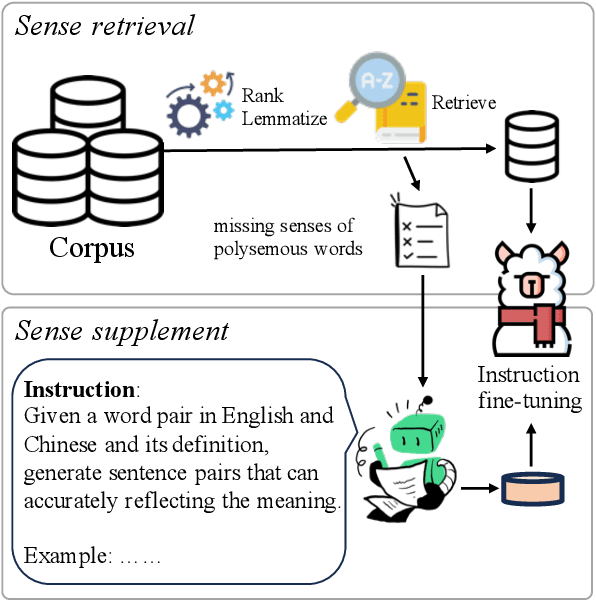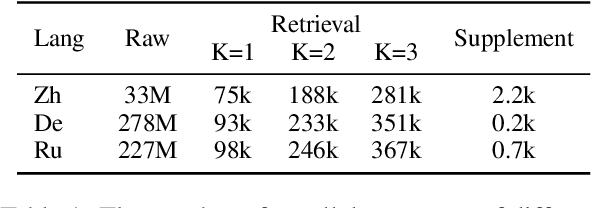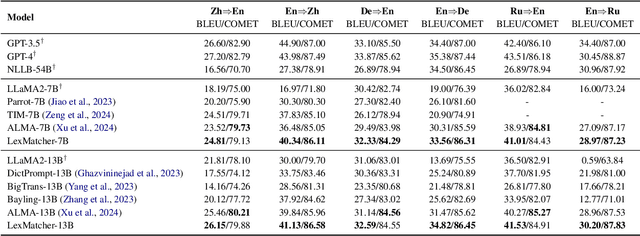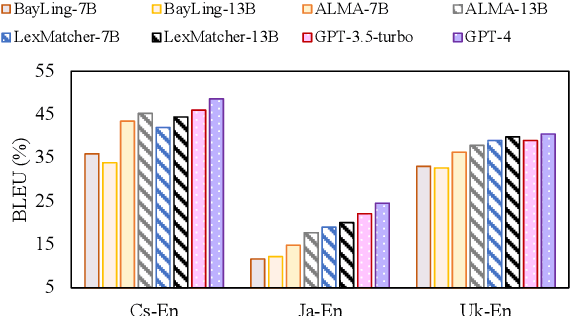LexMatcher: Dictionary-centric Data Collection for LLM-based Machine Translation
Paper and Code
Jun 03, 2024



The fine-tuning of open-source large language models (LLMs) for machine translation has recently received considerable attention, marking a shift towards data-centric research from traditional neural machine translation. However, the area of data collection for instruction fine-tuning in machine translation remains relatively underexplored. In this paper, we present LexMatcher, a simple yet effective method for data collection that leverages bilingual dictionaries to generate a dataset, the design of which is driven by the coverage of senses found in these dictionaries. The dataset comprises a subset retrieved from an existing corpus and a smaller synthesized subset which supplements the infrequent senses of polysemous words. Utilizing LLaMA2 as our base model, our approach outperforms the established baselines on the WMT2022 test sets and also exhibits significant performance improvements in tasks related to word sense disambiguation and specialized terminology translation. These results underscore the effectiveness of LexMatcher in enhancing LLM-based machine translation.
 Add to Chrome
Add to Chrome Add to Firefox
Add to Firefox Add to Edge
Add to Edge